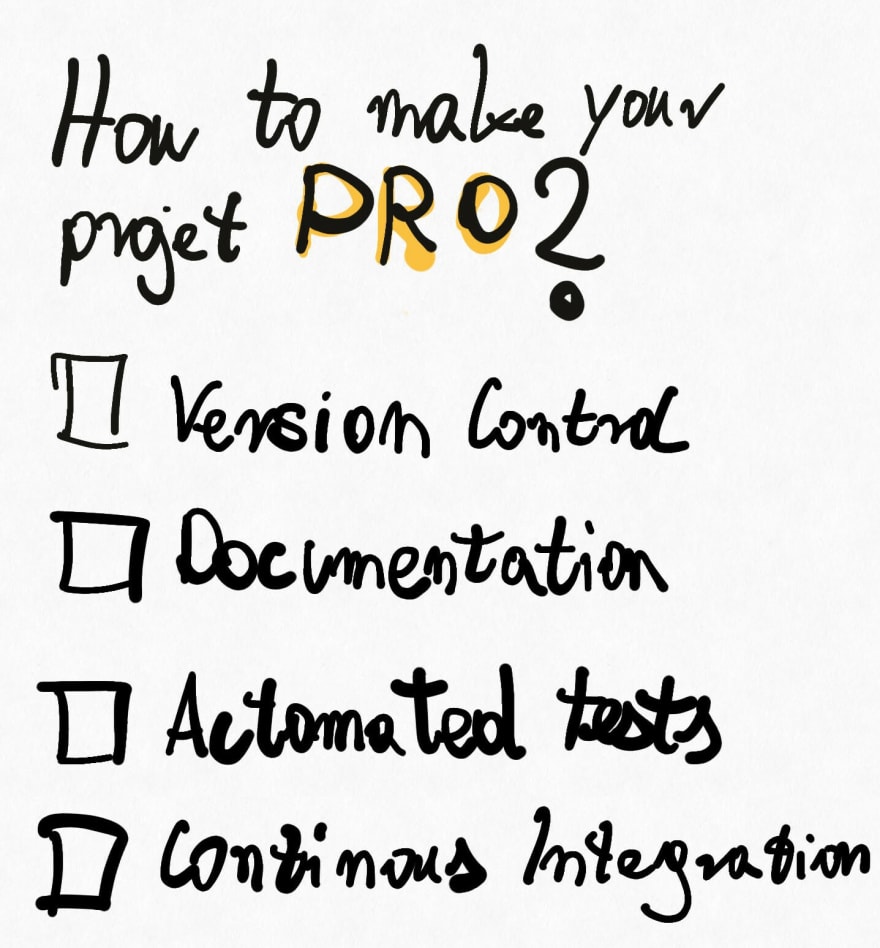Let's say your main job is not programming, but you managed to automate some everyday tasks with little scripts. Congratulate! You already maintain a code on production & it's already delivering value. Let's see how you can move to the next level and gain valuable programming skills along the way.
Staring point
Most likely, your code is:
- bunch of snippets copied from different places on the internet
- works in most cases, but sometimes fails randomly
- you are the only person able to use it
And on top of that, you have a feeling that it is not actual programming.
Possible improvements
There are few things that you can improve in a codebase like this. Benefits are going both ways:
- on the one hand, the company will be able to use the code even after you leave the current position
- on the other hand, you will be able to gain valuable skills & have some achievements to demonstrate it
The things you can add:
- version control - for example, git
- documentation
- automated tests
- continuous integration
Version control
Version control is standard for any serious programming, and it provides you with a quick way of restoring any past code version and allows you to document changes as you progress. If you didn't set up one for your project, you are wasting company resources (your time) & frustrating yourself for no reason. Currently, there are excellent free tiers on both GitLab & GitHub that cover private projects too.
Documentation
Topic developers love to complain about - either because they have to write it or because they get to work on an undocumented codebase. It would be best if you started with at least a README file, and as your project grows, look for a way to document individual parts of your application.
Automated tests
The most important is to get started and as early as possible. There are always higher priorities than to write tests, but at least you can get the infrastructure in place & write tests one by one. They will become very valuable as the application gets more complicated or pass the project to another person.
Continous integration
That's a bit fancy if you work all by yourself, but very important once other people contribute to the codebase. It lowers the barrier of entry to the project - you have another machine besides your own set up to run the project & its tests. As people will start contributing to the project, there will be a single place to check if all changes are working as expected or not - and all that without bothering you, the original creator of the application.
Summary
To improve your side project in work, you can use this simple checklist:
And start adding those things as you find some time for it! In the meantime, you can answer this 1 question survey that will help me write articles that are useful for people like you!



















